My Family Has More Staff Than Parasite
How I felt about the film
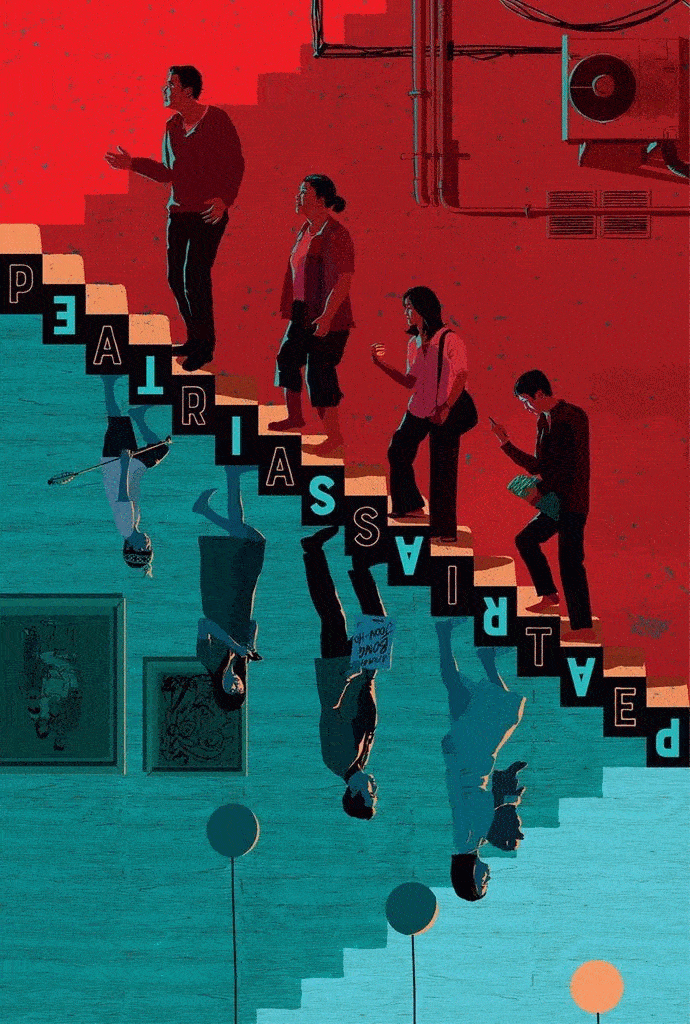
For most people, the idea of servants is as foreign as Bong Joon-ho’s film, Parasite. Not for me. At home, we have a cook, a nanny, two maids, and a part-time driver. We have more staff than the fictional Park family, though we’re not nearly as rich.
Watching Parasite was an intense experience for us because we expected to be the bad guys. But that’s not what I saw. The rich Park family was not uniquely evil. If anything, the poor Kim family was worse — seducing a child, lying, murdering. I think Bong Joon-ho was masterful at drawing attention to an evil system rather than evil people.
As I wrote earlier, the story was a modern capitalist horror, about a house haunted by class, which devoured all the families that entered it.
I think Bong Joon-ho is much more nuanced in this incredibly dense film. The problem isn’t uniquely evil capitalists, its evil capitalism (and class). It’s literal structural inequality, embodied in the structure of an effectively haunted house.
There are some things I found unrealistic but then, after having the film stew in my brain overnight, I realize that they are part of something much bigger than a picture of one domestic life. But I’ll get to that. Here’s what stuck out to me as someone who lives this life.
Some things I found unrealistic
I know and understand all the social dynamics in the film, not from a Korean perspective, but from an Asian one. Some things just made my wife and I immediately cringe.
Hide your kids hide your wife
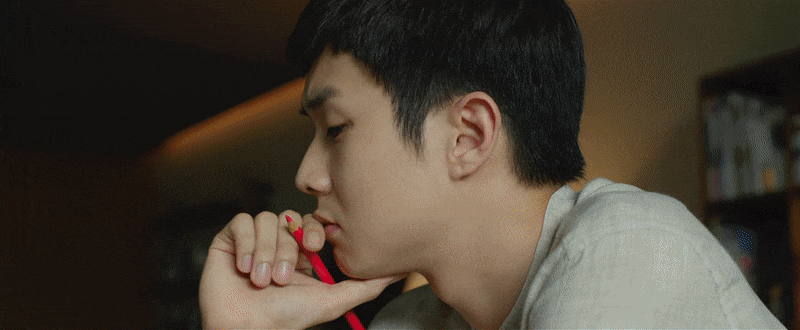
When Ki-woo joins the rich family as a tutor, he is taken upstairs, to the daughter's room. This would never ever ever happen. For obvious reasons, as emerges in the plot. And he touches the child’s wrist, to take her pulse, in front of the mother. This would make my wife’s head immediately explode.
At my house, we have an unspoken but rather strict upstairs/downstairs policy. This is a cultural practice we inherited. Male staff do not go upstairs unless they need to fix something. The only people that go upstairs are women that clean or do laundry, or with the children. When a driver collects the kids from school, he goes with a maid. Two people go to pick up one child because men are never left alone with children.
There is no way in hell that a male tutor is being left alone in a teenage girl’s bedroom. As a child, my wife’s tutor fell for her and later wrote her a letter, but they were never left alone, for this very reason. She always studied at the dining room table. Since the Greeks, the child/tutor relationship has been fraught. This is known.
Don’t get too familiar
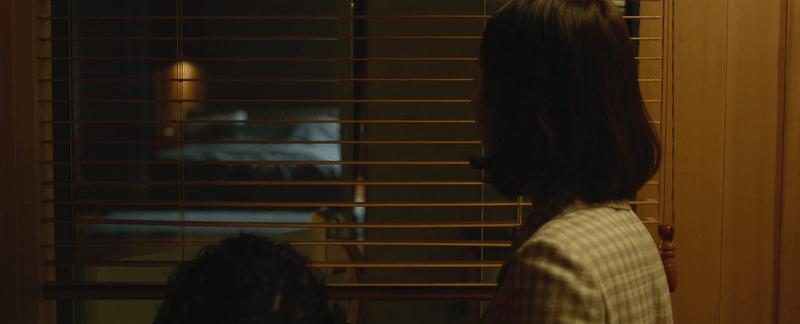
You do get weird co-dependent relationships with staff. In one family I know the nanny tells the child that demons are real and does a bit of black magic here and there. The family keeps her around because ‘finding staff is hard’. People retain staff that are robbing them or causing mad drama because the fear of being without help is greater. However, Parasite compresses this level of familiarity very fast.
Mr. and Mrs. Park talk to their staff a lot, and involve them in a lot of decision making about staffing. This is unusual. However, these are actually the most intimate relationships in your life, so it does happen, and Parasite is a film. I guess this is unrealistic, but I’ve seen a lot of unrealistic things.
Family first
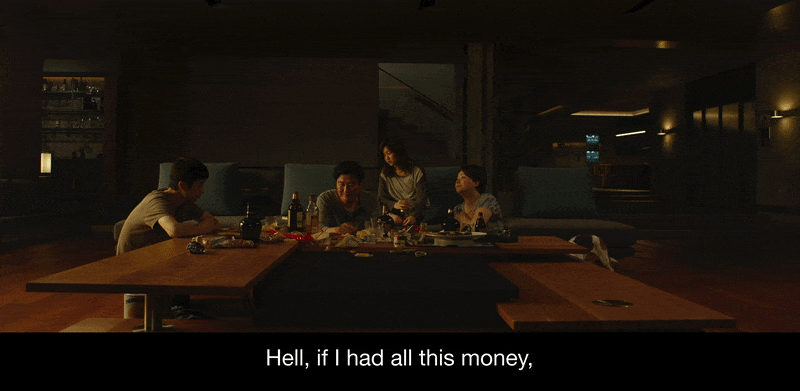
Domestic work is a fundamentally feudal system and hiring is conducted through feudal networks. Hence it’s curious that the Kim family tried to hide their relationship. My main question was, why? Someone being your sister or brother is an asset, not a liability.
The feudal system is structured around this, relationships of service and protection/oppression between families. That the Kim’s tried to obscure this with a fake domestic agency was confusing to me. If Ki-woo had said his sister was also a tutor, that would immediately be a plus.
Our maid and my mother-in-law’s cook are cousins. Our other maid and another driver are brother and sister. And on and on. There are retail companies where the staff is mostly bused in from one ancestral village. Political appointments are given this way, even corporate jobs. It’s not nepotism here, it’s just here. Family is a feature, not a bug.
These jobs are hard
This seemingly ‘loser’ family is extremely good at their jobs. Being a tutor is hard, being a good driver is hard, and being a good housekeeper is the hardest of all. Recently a Silicon Valley female CEO went viral for an insanely detailed job description for a nanny. Her description was pretty accurate. These are difficult, skilled jobs. I don’t know who came up with the term unskilled labor, they obviously weren’t doing it.
Maybe you could fake it as a tutor or a driver, but being a competent housekeeper is like running a small company, and doing the labor. For the schleppy mother to quickly step into the role was a bit unbelievable, but they seemed to have run failed businesses before. So perhaps I’m wrong here, but it stuck out.
Who cares it’s a metaphor
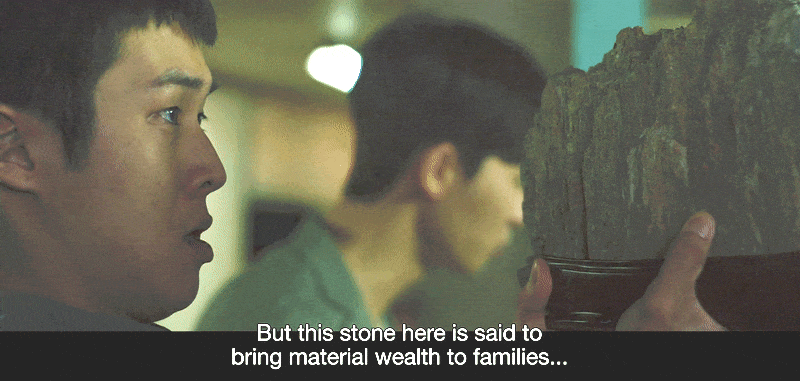
As someone who has staff, I immediately compared the film to my own experience. This, I think, made me a bit slower to suspend disbelief. However, it’s entirely possible that my experience is not the norm.
The fact is that the domestic work industry is unregulated, both legally and culturally. It’s just a relationship between people, and families and it can go all sorts of different ways. In Parasite it went bad for the rich family, but in reality, it’s almost always worse for the poor. This is the nature of power.
What’s the answer to the inequality presented in Parasite? The Park family paid the Kims well and treated them decently. And yet the inequality was there. It wasn’t personal inequality, it was structural.
I think about our family situation, we try to be good employers but everything we do is discretionary. If we want to be bad, nothing will stop us. Any decency is our whim, not their right. The flipside of this is that I know of families where they just leave on a European vacation for months, and don’t pay their staff for that time. If someone loses an earring a maid loses their livelihood. And forget pensions and healthcare, that is all at the discretion of the boss. It’s noblesse oblige, and most bosses aren’t especially noble.
So what’s the answer? Well, I don’t think it’s stabbing the boss at a garden party. But I do think the structure around domestic work has to change. It’s this weird category that’s separate from all other labor laws, and I think that has to change. We’ve thought of doing that for our household, but it’s super complicated. We have to register a company and hire the staff as employees and then they get access to legally-mandated pensions, protections against undue dismal, enforceable contracts, etc.
Maintaining a company is a burden and I think there should be legislation to protect domestic workers just as other workers are protected (in my country at least). As an example, I support the work Ai-Jen Poo et al are doing around a Domestic Workers Bill Of Rights.
Then, of course, there’s the deeper structural inequality. The fact that goods and income are taxed but wealth often isn’t, or is hidden. Then the even deeper issue still, that all of us — rich and poor — are more focused on getting ahead than on changing to a more equitable system at all. This is another issue that I think Parasite captures well.
I don’t know the answers to these questions. For most of life, you can live surrounded by and benefiting from inequality. Parasite at least makes you think.